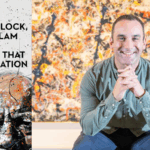Why Faith-Based Leadership Matters in the Church
As we enter the season of Advent and look toward Christmas, we are reminded of the mystery and wonder of the Incarnation—God becoming flesh in Jesus Christ. This season invites us to reflect deeply on what it means for Christ to be present with us, not only in the world but also in our leadership practice. Just as the Incarnation reveals God’s way of dwelling with humanity in humility, love, and salvation, our leadership in the church is also called to reflect this incarnate Christ.
Leadership is more than a title; it is a dynamic force that shapes the direction, culture, and purpose of communities. In the Uniting Church, leadership is not only important for organisational health and flourishing but is also an expression of our theological calling to engage and participate as how we deeply are in God with God’s mission. Whether we are offering leadership in a local congregation, a School or Aged Care facility or any other institutional setting, Presbytery, or Synod/Assembly, we are called to guide others in a vision that is grounded in our faith.
What Is Leadership in a Church Context?
Leadership in the church encompasses much more than management or administrative governance or growth strategies and communal organising around vision and direction. I have heard for many decades in our church leaders about how the struggle of leadership has become kin to the craft of bureaucratic compliance lamenting how much time and energy this takes up at the expense of discipleship, ministry, and mission. While many acknowledge the importance of this for institutional life to flourish in safe and good environments (as part of discipleship), in many places, this is now becoming a heavy load of leadership due to the size and vitality of many of our councils due to age and capacity, just to keep up with maintenance and order; it starts to beg the question, is this incarnate Christian Leadership, or is there something we are not discerning. How is this posture about embodying Christ’s way of leadership—guiding a community into deeper discipleship, faithfulness, and missional engagement? These tensions are evident in the Synod and across the councils of the church, in creative re-imaginings of Church Councils, Congregations, Presbyteries, Synod, and Assembly are taking place formally and informally (Presbytery Project, Act 2, etc).
In the midst of this, it is important to remember a theological conviction, as reflected in the Basis of Union, that the crucified risen Christ is at the heart of our witness. This Christ pours his life out and becomes the human incarnate one of God, even to the point of being broken and killed on the cross. This can be hard to understand and sometimes has been used to argue cohesive control by some leaders in less healthy forms of church; the church witness, however, does point to the genuine and costly love that is both mystery and grace; the wonder is that this embodies God’s new creation, resurrection, and new life as gifts to and with us in Christ. At the heart of this theological reflected leadership is a posture of humility seeking to embody this way of Christ (with discernment grounded in the biblical witness and dialogue with reason, tradition and experience), recognising that we do not have all the answers and often get things wrong, that suffering and death and coming to an end can also be a means of God’s transformation. So, it isn’t about us, but us in Christ, as the New Testament witness of Paul reaffirms. Incarnation, Surrender, and sacrifice are not about our subordination to the exploitatory systems of those who seek to dominate and control but to God’s unfolding liberating grace, hope, justice, and love. Christ-shaped leadership embodies humility as a gift, allowing us to be who we are deeply created to be, through which God is present and at work—even in our morality, brokenness, and imperfection. It also allows leaders to see that their talents and strengths are gifts of God in them, opening a curiosity at the wonder of God’s gifts to all humans (and creation) in a particular movement of a deeper communion. God’s grace, present and at work in Christ and the Spirit, is not limited by our mistakes, anxieties and brokenness, systems of subordination, and oppressive self-serving control. In fact, it can be the ground in which Christ works and, through all this subversively, offers healing, reconciliation, justice, transformation and peace. Discerned well, this becomes the incarnate spiritual disciplines of individuals and the Christian community who embody the ministry and mission of the Incarnate Christ.
Christian Leadership, in this sense, is not about the superhero leader who saves the day, nor is it about being a subservient doormat for others; it is about creating space, facilitating and mobilising communities discovering together, in wonder and awe, who God is and what God is doing. Each member of the church and the wider community is part of this unfolding story, and the leader’s role is to nurture, articulate and facilitate an environment of encountering the Incarnate Christ, where everyone’s gifts, blind spots, brokenness, and experiences contribute to God’s shared ministry and mission through worship, witness and service for the sake of the world (creation).
The Tension Between Secular Governance and Faith-Based Leadership
In today’s church, some leaders often struggle between secular organisational leadership demands (often not understanding such expectations, hitting ideological challenges, or believing that only if we get the governance ‘right’ everything will be ok) and a focus on faith-informed leadership. While governance, including accountability, strategy, oversight, and policy, are essential, they need to be in deep dialogue with the craft of theological reflection in leadership. Faith-based leadership has some distinctions in the Uniting Church as it is grounded in communal discernment—listening to the Spirit at work within and beyond the congregation or council.
This tension requires us to ask critical questions: What does faithful governance look like when the Christian faith informs it? Could it lead to civil dissidence and conflicts between risk mitigation and faith, for example? How does our informed faith not be sidelined but remain a central conversational partner? How do we avoid merely replicating secular corporate models of leadership uncritically with the lens of contextuality, instead fostering governance that reflects Christ’s nature and way with the communal aspects of being the Body of Christ in Mission?
The Role of Communal Discernment
As mentioned above, one of the essential aspects of faith-based leadership is the process of communal discernment. For us in the Uniting Church, the consensus decision model facilitates this when it works at its best. Vision and mission in the church are not set by a single leader or a single doctrine in isolation but are discerned by the community in prayerful reflection on where God is leading. This discernment process can be playful and creative, involving conversation, exploration, and even experimentation to discern the way. This, at its best, can reflect a triune-shaped theological posture. Vision-setting and mission planning are not static activities; they are dynamic and participatory, ensuring that everyone can voice and discern the direction of the church community and participate in such discernment together. It is incumbent that leadership is always testing and exploring, offering proposals with the discernment of the Church. Our Western obsession with the simple process and quick solution can sometimes be helpful. However, they also blind us to non-linear and communal ways of discerning, reflecting, and acting, as reflected in many indigenous and global cultures, let alone in the biblical witness.
In this space, theology does de-centre a leader from the need to be the hero, the controller or believe that our self-actualising is the full truth and picture; humility becomes critical in the reordering theology calls us into. While individual character, competencies and calls are important, Faith-based Leaders must acknowledge and fight the Western cultural trend to be less critical of self-actualising drives as “the answer” and press into the realisation that while we have voice in the conversation, we do not have all the answers and must open ourselves to learning from others in the community and the transcendent nature of God. There is power in acknowledging when we get it wrong, for it is often in our failures that we encounter the most profound moments of grace, learning and growth. As Christ’s ministry was one of healing and reconciliation, our leadership, too, must reflect this willingness to learn, receive healing, and be transformed through our collective brokenness, errors and biases with much confession, not as guilt or shame, but as honesty engaging and becoming who God is calling us to be in this deep craft of discernment.
Such Christ-shaped, deep discernment can (and should) then mobilise discipleship, ministry, and mission as spiritual disciplines (communal and individual) that express the incarnate Christ. Otherwise, there is no discipleship, no ministry, no mission, no action, no movement, no embodiment, no communion, no love in action, no justice or peace which Christ brings, which transforms this world.
Facilitating Adaptive Leadership
From a theologically grounded place (and I am sure your framing and language around this will reflect resonance and difference due to your discernment and formation, in the Uniting Church, as there is diversity), we all can engage with a grounded leadership without colliding blindly with the philosophies (like competitive neo-liberalism) that, at best, distract us or, at worst, commodify or collude with ego or oppressive competitive structural systems and cultures. This does not mean we don’t have things to learn about leadership formed in the crucible of non-faith-based settings. Adaptive leadership, for example, is increasingly important in an ever-changing world. This kind of leadership allows us to remain flexible and open to new possibilities, responding to emerging needs in our community and world. Popularised by leadership scholar Ronald Heifetz, a vital skill for Leaders would benefit from is having the capacity to step back—what we might call moving to the “balcony”—and reflect on the broader picture while remaining grounded in the “dancefloor” of everyday practice. This reflective-practice-reflection model allows leaders to assess both the immediate and the long-term, helping communities adapt and thrive in the face of challenges. Bringing this into dialogue with theological reflection is essential for Christian leadership.
Generational Leadership and Shifting Styles
Leadership styles are also shifting, especially as new generations step into roles within the church. Generational changes bring fresh perspectives, including a greater emphasis on collaboration, transparency, and shared leadership. Younger leaders often seek more fluid and adaptive approaches, valuing collective discernment over top-down decision-making. This shift calls for established leaders to mentor, coach and support these emerging leaders while embracing new models of leadership that are flexible and forward-looking.
The Wonder of God’s Work and the Posture of Awe
At the heart of our faith-based leadership journey needs to foster a sense of wonder at what God is doing in and through the church. The awe of God’s work reminds us that leadership is not about us, but about Christ incarnate, God’s Spirit moving in and through Christ’s people. Every member of the church has a unique part to play, and God works through all of us, even our imperfections and mistakes.
Christian leaders are encouraged to cultivate this posture of awe and humility, recognising that our leadership is merely one part of God’s larger, redemptive, just, healing, loving, eschatological vision for all creation. In the Uniting Church, we are continually called to remember that God is present and at work, even when we falter, and that the grace of Christ is sufficient to transform our broken offerings into vessels of healing and hope as a witness with the world.
The Call to a New/Old Kind of Leadership
In this time of discerning and exploring much institutional change, the Uniting Church is called to embrace a new/old kind of leadership—one that is theologically grounded, relational, and adaptive. We are invited to lead with integrity, grace, and attentiveness to the Spirit, companioning and championing our communities in Christ’s vision for renewal and justice.
This leadership intersects governance and mission, vision, and action within a framework of communal discernment and theological reflection that can express the Incarnate Christ. As we continue to reflect on what it means to lead faithfully, we are reminded that leadership is not a static role but a co-creative craft that requires our ongoing attention, humility, and openness to God’s unfolding work.
I offer this reflection as both a reminder and an invitation to consider the nature of Christian leadership in this Season of Advent.
May we continue to explore, together, what it means to lead with Christ incarnate at the centre, in awe of the wonder and grace that God is working in and through us.
Access Translated versions of this article
- Access the Tongan translation of this article here.
- Access the Korean translation of this article here.
Rev. Ben Gilmour, Head of Vital Leadership, Uniting Mission and Education











